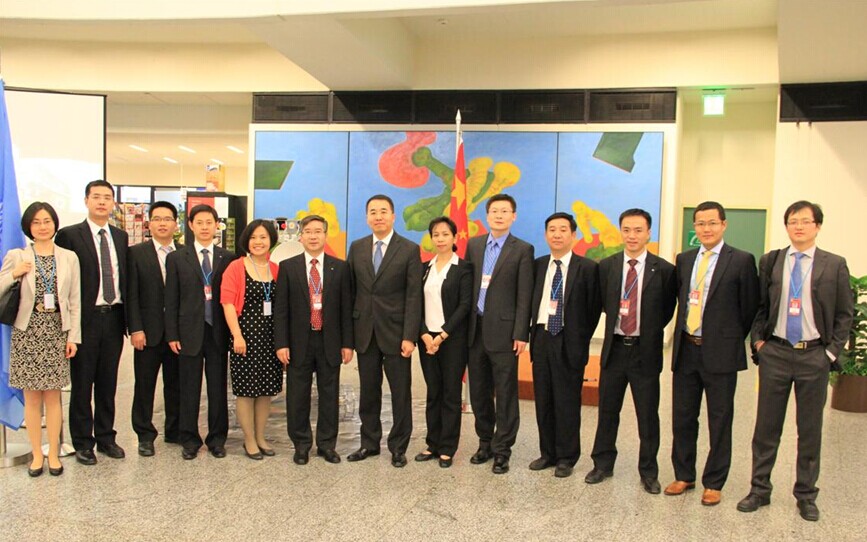The
57th Meeting of UN COPUOS was held in the Vienna International Centre from June
11 to 20. Associate Professor Jinyuan SU of XJTU School of Law attended the
meeting as a member of Chinese delegation and delivered a technical
presentation at the meeting.
This
event attracted over 90 delegations of member states and international
organizations. The head and the deputy head of the Chinese delegation were
respectively Ambassador Jingye CHENG, the Chinese representative to UN and
other international organizations, and Xinmin MA, Counselor of the Department
of Treaty and Law of the Ministry of Foreign Affairs, and the members were from
the Ministry of Foreign Affairs, the State Administration of Science,
Technology and Industry for National Defense, the Ministry of Industry and
Information Technology, the General Armament Department, Chinese Academy of
Sciences, Chinese Society of Space Law, Xi'an Jiaotong University, Beijing
University of Aeronautics and Astronautics, Beijing Institute of Technology and
some other departments.

Associate
Professor SU attended this event as a member of Chinese delegation. During the
event, he participated in drafting the presentations of Chinese delegation on several
topics, such as "General Statement", " Methods and Means of the
Peaceful Uses of Outer Space" and " Future Missions of the Commission",
and attended the working group meeting of COPUOS Technology Group on "The
Long-term Sustainability of Outer Space Activities".
Associate
Professor SU delivered a technical presentation entitled "China's Study on
Space Law" at the meeting on June 16. He introduced the three development
phases of China's study on Space Law from its infancy to professionalization to
prosperity and advocated closer exchanges and cooperation between scholars all
over the world to promote the development of International Space Law. There
were 4 technical presentations delivered by the members of Chinese delegation
among the total of 27 during the event. The other three Chinese speaker were
respectively from the Ministry of Foreign Affairs, the Chinese Lunar Exploration
Program Office, and the China Manned Space Engineering Office.